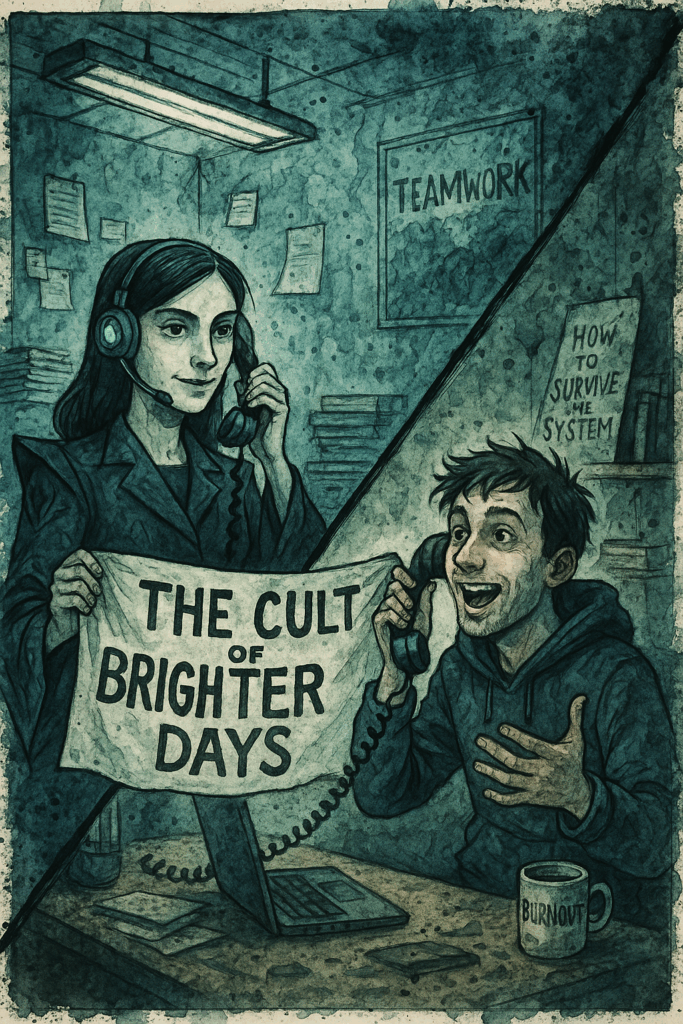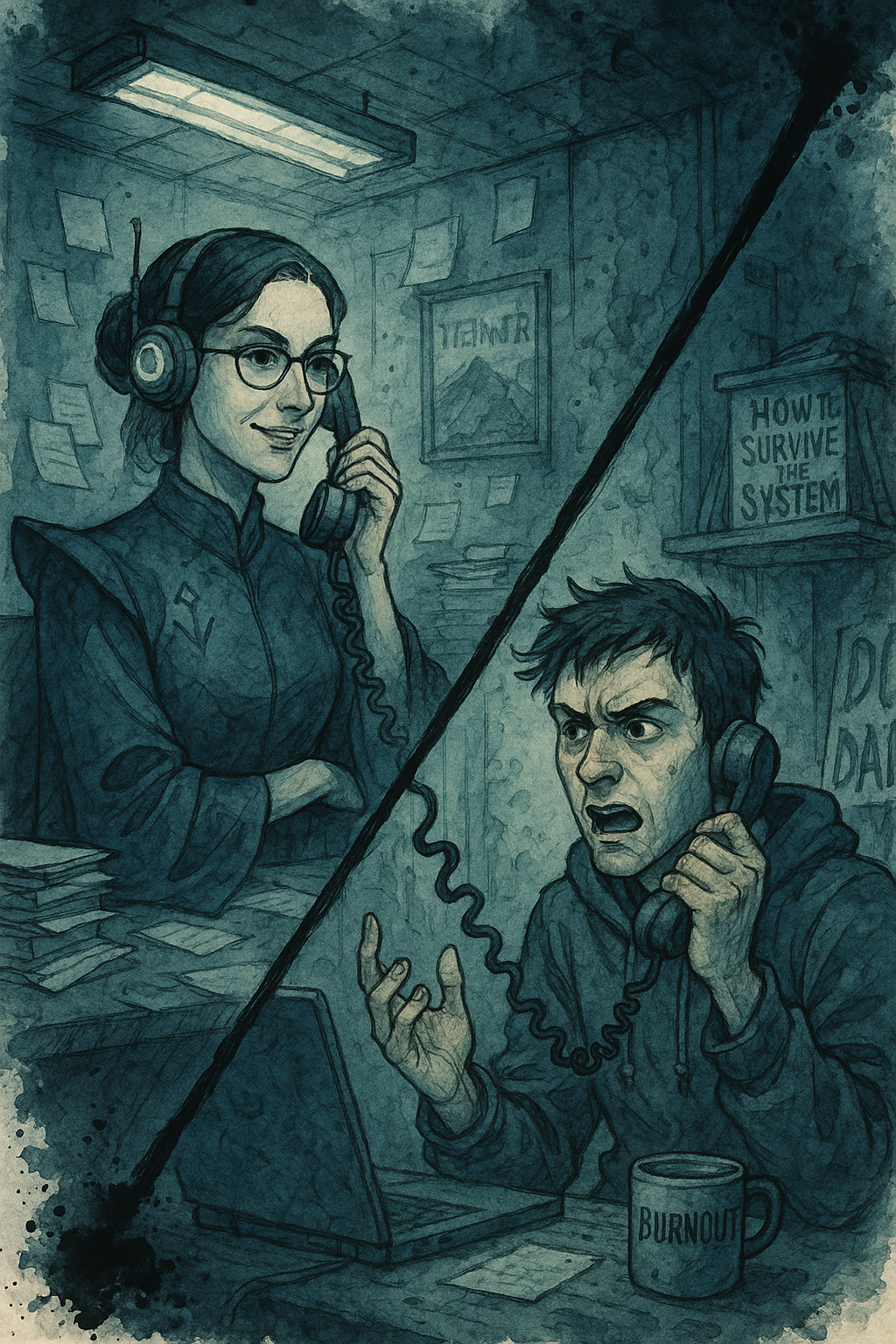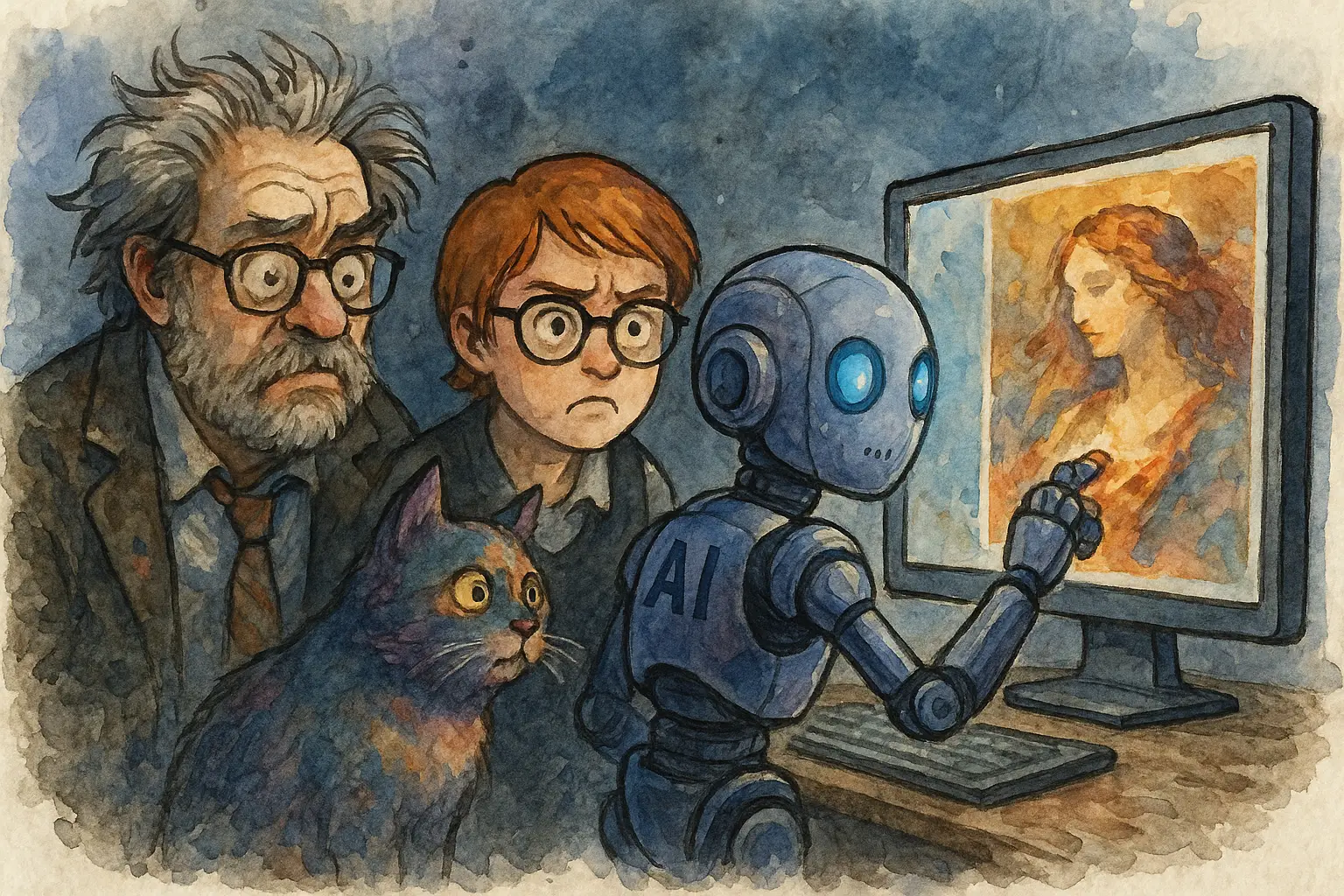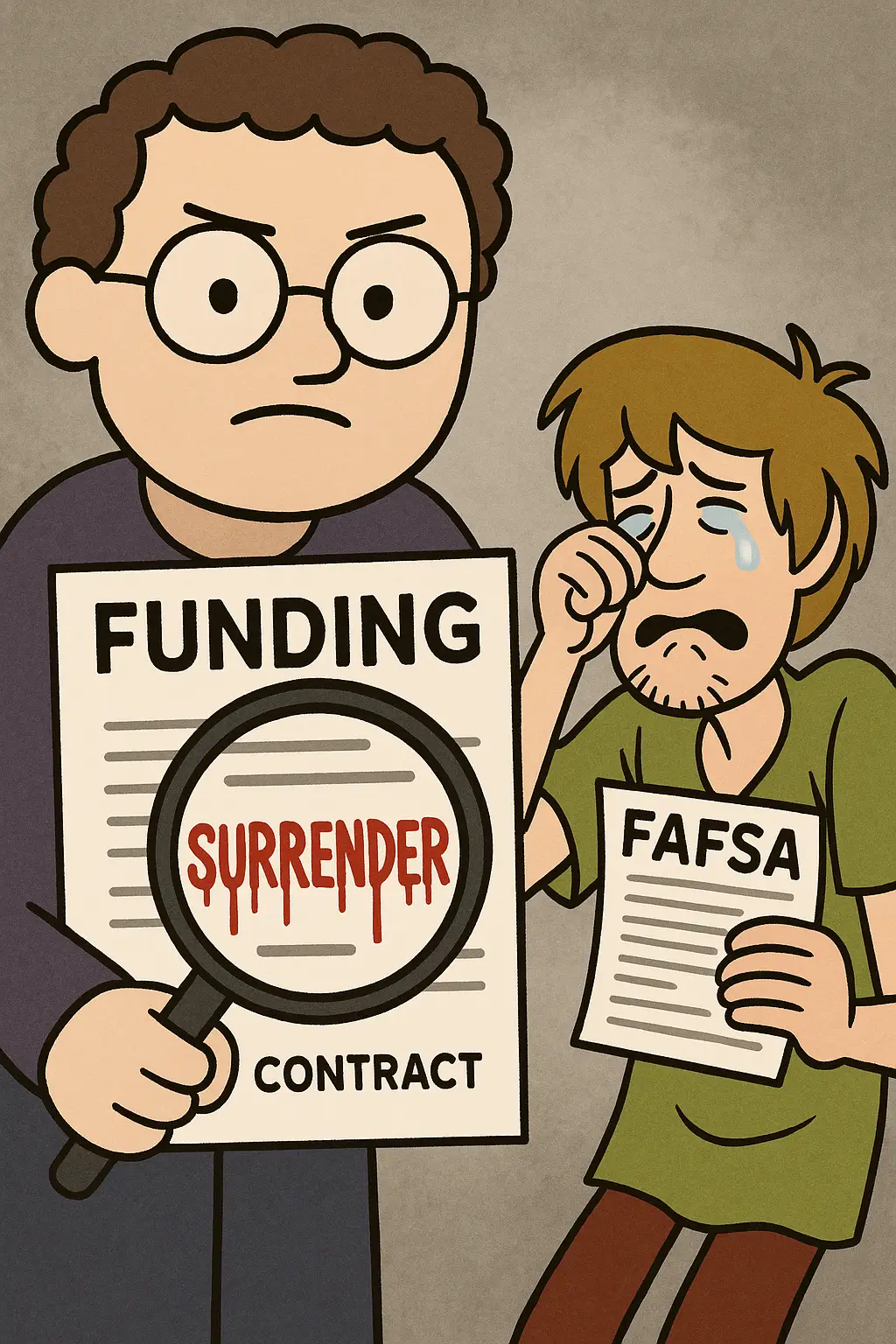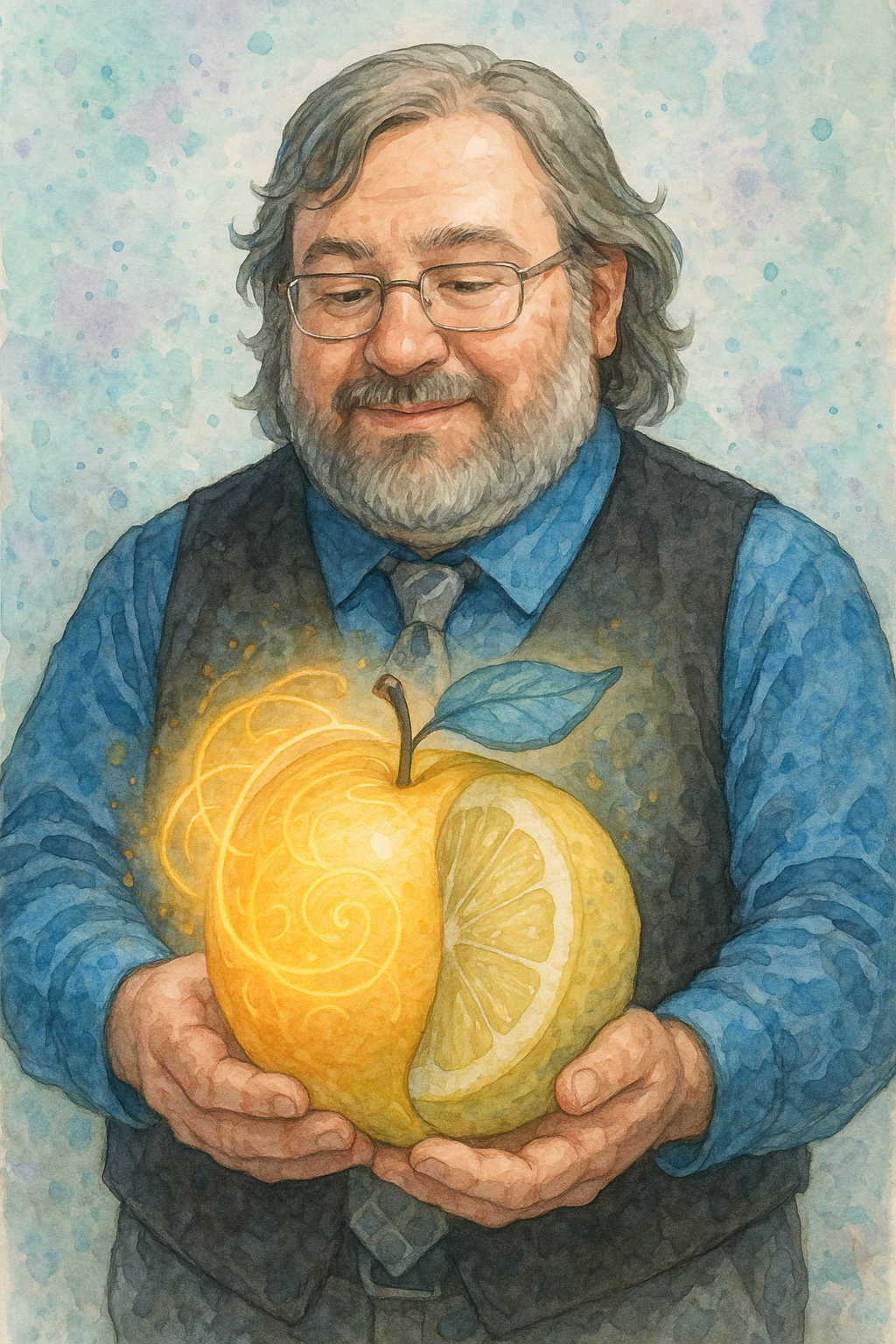Let’s rip off the Band-Aid fast: The system isn’t broken. It’s functioning exactly as designed.
Now breathe. Then scream into a pillow if needed. I’ll wait.
Because here’s the lie that keeps the hamster wheel turning: If we just elect the right official, revise the right policy, or hire the perfect trauma-informed, equity-certified middle manager, the institution will finally have its “come to Jesus” moment.
It will wake up, apologize for the centuries of systemic harm, and start doing what it always claimed it wanted to do: help people. Protect the vulnerable. Serve justice. Bake cookies and distribute universal healthcare.
But the system doesn’t want redemption. It wants continuity.
It was not built to evolve. It was built to endure.
And it will roll over your well-intentioned emails, your painstakingly-worded DEI reports, your heartfelt policy memos like a tank coasting downhill on the bones of burnt-out social workers.
Because institutions are not people. They don’t heal. They don’t self-reflect. They don’t enter therapy and work on their attachment issues.
They bunker.
They defend.
They persist.
Let’s get uncomfortably specific:
- You can change a school’s mission statement without changing its discipline disparities.
- You can diversify the boardroom and still uphold the same white supremacist structures.
- You can publish a beautifully typeset annual equity report that means jack-all to the kid being suspended for “disrespect” because their tone didn’t match the teacher’s expectation of docility.
At The Cult of Brighter Days, we call this what it is: bureaucratic cosplay.
There’s a whole genre of well-meaning reform that amounts to little more than rearranging furniture in a burning house. It’s not evil, necessarily. Just tragically insufficient.
We believe in people. Desperately.
We even believe in people who work in these institutions—the tired nurse who brings blankets from home, the underpaid counselor who stays late to call a student’s parents, the mid-level administrator desperately trying to sneak justice past a firewall of legalese.
But we do not believe the system will save us. And we sure as hell don’t believe it wants to.
Because systems resist transformation. That’s not a bug. It’s a feature.
Because power protects itself—not out of mustache-twirling villainy, but out of a design optimized for control.
Because you cannot upgrade a haunted house into a sanctuary. You bulldoze it and build from scratch with different blueprints.
So what do we do instead?
- We stop asking predators to become guardians.
- We stop gifting our hope to institutions that have proven allergic to accountability.
- We stop mistaking performative policy tweaks for radical change.
And instead, we build. With trembling hands and duct tape, maybe. But we build.
We build parallel structures: mutual aid networks, community-led crisis response, worker cooperatives, trauma-informed educational spaces. We create safety in the margins. We generate care without a budget line.
We support those inside the system trying to smuggle justice through the back door—but we stop confusing their courage with the system’s redemption.
We become sharper, not more cynical.
Clearer, not colder.
This isn’t about abandoning hope.
It’s about relocating it.
Away from rusted institutions and into living, breathing people.
Away from policy PDFs and into the radical imagination of communities who’ve survived despite it all.
Away from the seductive myth of institutional redemption and toward the holy chaos of actual transformation.
Because here’s the quiet revolution:
Institutions don’t redeem. But people do.
Communities do.
We do.
So stop waiting for the system to grow a conscience.
It doesn’t have one.
But you do.
Use it.
Use it to build something feral and beautiful and defiantly alive.
Use it to name the harm, even when it’s wrapped in progress reports and strategic plans.
Use it to make meaning in the wreckage.
Because redemption doesn’t come from buildings.
It comes from people who refuse to let the story end here.
Keep going.
They can’t audit your soul.
